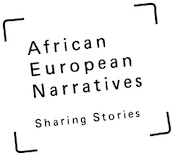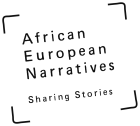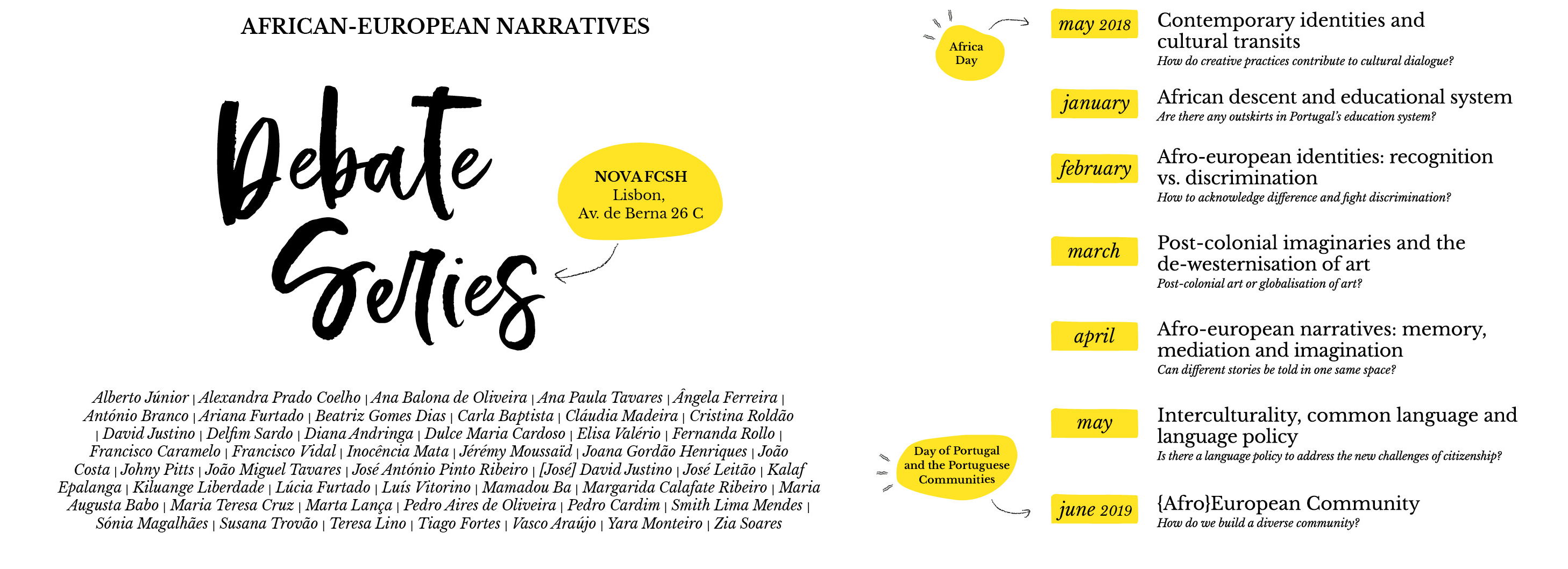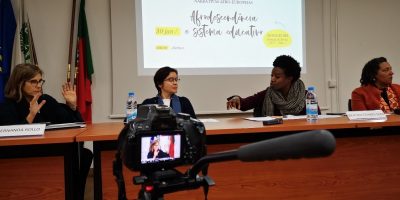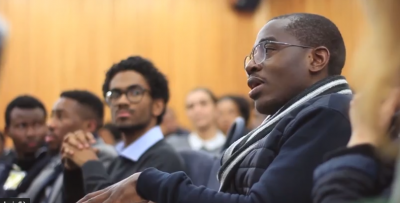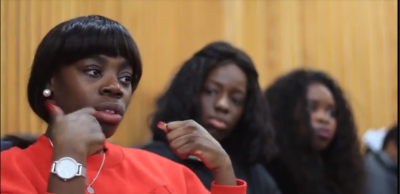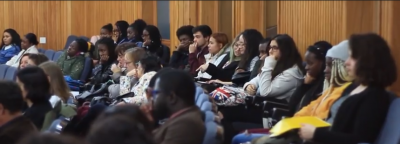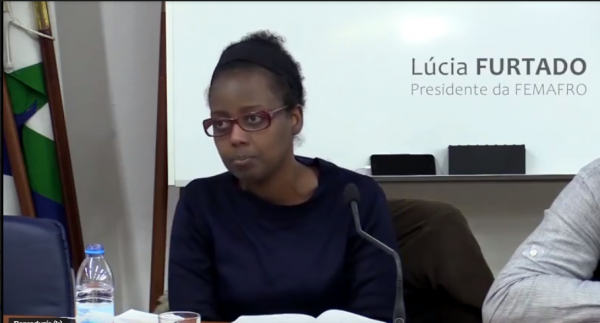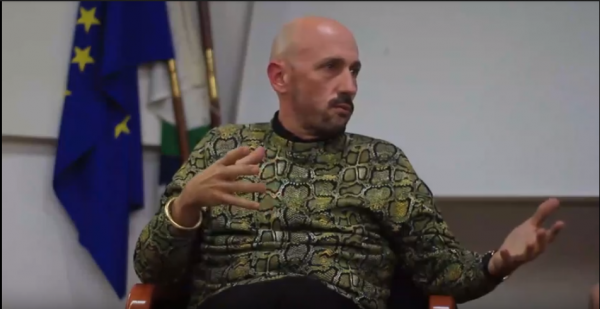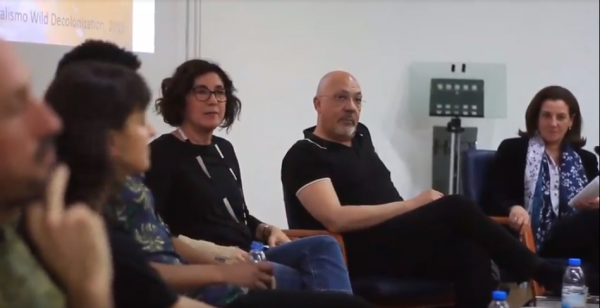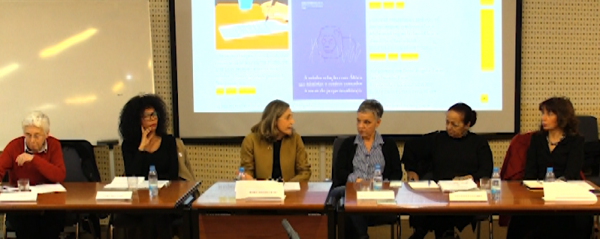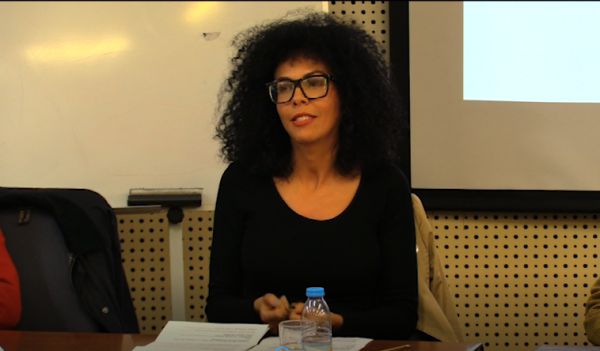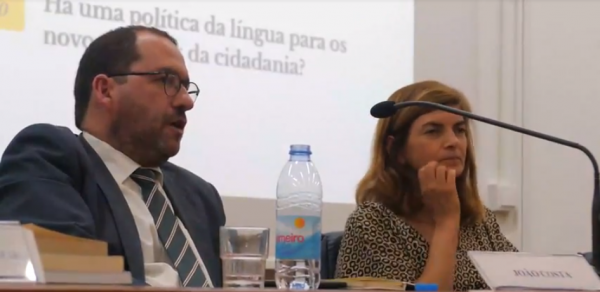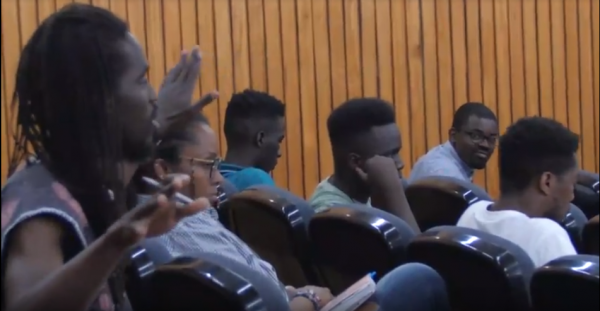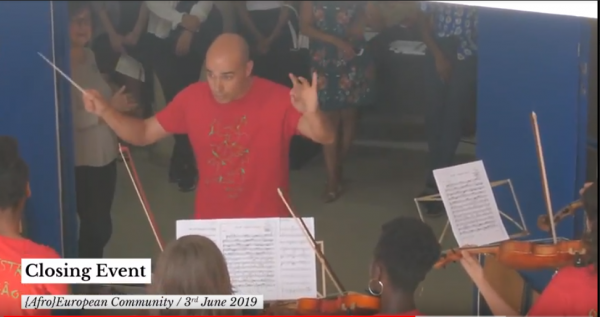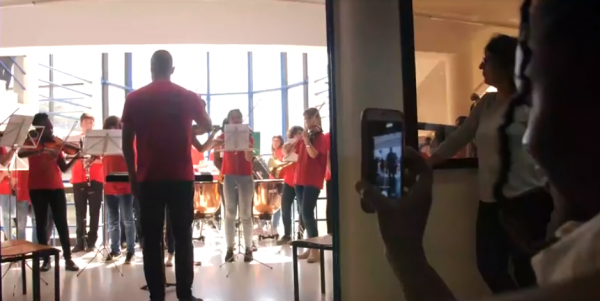Dissemination : Sharing ideias (Event Description)
Debate Series Afro-European Narratives 2018-2019
NOVA University of Lisbon
School Social Sciences and Humanities
The Debate Series African-European Narratives tackled central issues of post-colonial societies, such as discrimination and racist behaviour, Afrodescendants access to the educational system, multilingualism, dominant narratives and counter-narratives, the role of creative practices and cultural consumption to cultural dialogue, etc. Valuing public debate and citizenship as central aspects of the production of knowledge the Faculty of Social and Human Sciences (FCSH) of NOVA University of Lisbon invited a diverse set of participants to share ideas and arguments: activists and politicians, teachers and students, journalists, writers and artists.
Opening & Closing Events
The Debate Series Afro-European Narratives carried out its first public initiative on the Day of Africa 2018 (25th May) and its closing event on the 3rd June 2019, a few days before the official celebrations of the Day of Portugal.
The arch between these events symbolises the central relationship of many European countries with the African continent, in both their past and present experience. The journey proposed by the project was one of storytelling, cultural dialogue and open debate among countries with similar experiences. The goal was the acknowledgement of a still necessary process of decolonisation of institutions and minds and the crucial role the European Community in building truly post-colonial societies and in offering a new sense of belonging to the diversity of their citizens.
Opening: Susana Trovão (Director For Research of NOVA FCSH)
Closing: Francisco Caramelo (Director of NOVA FCSH)
Opening Event
25th May 2018, Day of Africa
CULTURAL TRANSITS AND POSTCOLONIAL IDENTITIES
How can creative practices contribute to cultural dialogue in Europe?
Postcolonial identities are built upon a diversity of backgrounds and diaspora memories, often invisible within the dominant culture. Integration and sense of belonging are, therefore, the result of constant cultural transits and translation processes between different experiences and narratives. How can creative practices contribute to cultural dialogue, a critical aspect within multicultural societies? Music has been a great example of how art can impact the interplay between cultures. How can other creative practices (such as cinema, theatre or literature) influence Europe’s ability to imagine itself anew?
Pannel
Jérémy Moussaïd Kerouanton (iZEM), FR
(Musical producer and performer)
Johny Pitts, UK
(Writer, photographer, editor of AFROPEAN, UK)
Kalaf Epalanga, PT
writer
Kiluange Liberdade, PT
(Filmmaker)
Zia Soares, PT
(Actress, Director of Teatro Griot)
Moderators
Cláudia Madeira and Teresa Cruz (ICNOVA)
30th January
AFRICAN DESCENT AND EDUCATIONAL SYSTEM
Are there any outskirts in Portugal’s education system?
The education system is the basis of social cohesion in democratic societies. We trust it to promote equal opportunities while, at the same time, respecting diversity. Has Portugal’s education system been able to deal with its postcolonial condition? And is it ready to meet the social and cultural challenges of an increasingly diverse society? What kind of obstacle do Afrodescendants find to access the university? Are there outskirts and discrimination in the education system and school life?
Pannel
Beatriz Gomes Dias
(Activist, President – DJASS – Association of Afrodescendants)
Cristina Roldão
(Activist, researcher at CIES – IUL)
David Justino
(Minister of Education XV Portuguese Government, Professor and Researcher at CICS.NOVA)
Fernanda Rollo
(Secretary of State for Science, Technology and Higher Education, XXI Portuguese Government)
Sónia Magalhães
(Activist and researcher, Director of PRSD – Providers of Social Responses for Development)
Debate
Ariana Furtado (Primary school teacher); Elisa Valério (Secondary school teacher); Luís Vitorino (President of Lisbon’s Angolan Students Association); Smith Lima Mendes (African Students Group – AE FCSH); Tiago Fortes (African Students Group – AE FCT); Alberto Júnior President of the Guinea Bissau Students Association in Porto (AGBP).
Moderator
Alexandra Prado Coelho
(Journalist, Público)
- Fernanda Rollo (Secretary of State for Science and Higher Education, XXI Portuguese Government), Alexandra Prado Coelho (journalist), Beatriz Gomes Dias (Association of Afrodescendants), Cristina Roldão (researcher)
- Luís Vitorino, Tiago Fortes, Smith Lima Mendes, Alberto Júnior (Presidents of African students groups and associations)
- Questions from the audience
- Questions from the audience
18th March
AFRO-EUROPEAN IDENTITIES: RECOGNITION vs. DISCRIMINATION
How can we acknowledge difference and fight discrimination?
African diasporas and African descendants represent one of the most significant social and cultural dimensions of postcolonial Europe. However, socioeconomic fragility and discrimination are aspects that affect these communities in most European countries. This reality, characterised by activist discourse as “structural racism”, is the basis for the demand of “affirmative politics” and broader representativeness of a “Black Europe”. Historiographical narratives are also examined and opposed through “counter-narratives” to criticise mythified visions of European history and identity and the silencing of “black stories”. In growingly multicultural or even hyperdiverse societies, how do we fight the politics of identity and otherness? How to acknowledge di
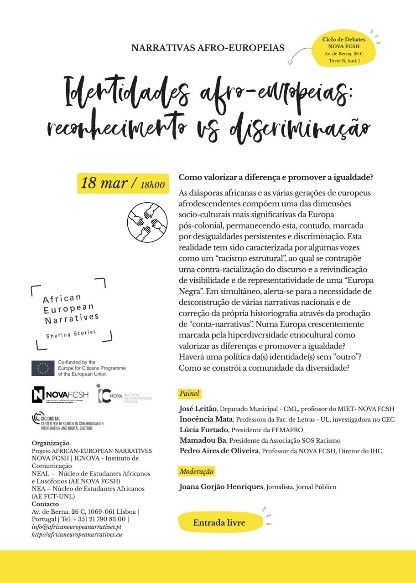
fference and fight discrimination?
Pannel
Inocência Mata
(Researcher at CEC, University of Lisbon)
José Leitão
(Municipal deputy, teacher at NOVA FCSH -MIET)
Lúcia Furtado
(Activist, President of FEMAFRO, PT)
Mamadou Ba
(Activist, President of SOS Racismo )
Pedro Aires de Oliveira
(Researcher at NOVA FCSH, Director of the Institute of Contemporary Institute)
Moderator
Joana Gorjão Henriques
(Journalist, Público)
28th March
POST-COLONIAL IMAGINARIES AND THE DE-WESTERNISATION OF ART
Postcolonial art or globalisation of art?
Contemporary art has been one of the most advanced fronts of postcolonial thinking, not only in its aesthetical but also in its epistemic and political implications. Various artistic practices of the last decades have significantly contributed to the knowledge of new cultural geographies, the deconstruction of European colonial imaginaries and the critique of a fundamental cultural bias: the belief in the primordiality and universalism of western art. However, contemporary artistic culture is strongly codified by western practices, and the modes of production, enframing and circulation of art replicated around the world through museums, art shows and the art market. Has postcolonial art succeeded at opening up an era of the de-westernisation of art or are we, on the contrary, witnessing the process of its globalisation?
Pannel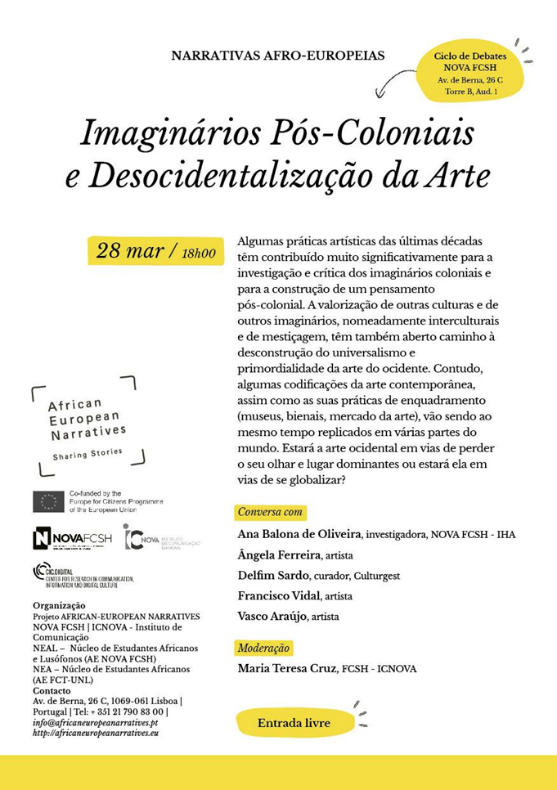
Ana Balona
(Researcher at NOVA FCSH, IHA)
Ângela Ferreira
(Artist, researcher at FBAUL)
Delfim Sardo
(Curator, Culturgest)
Francisco Vidal
(Artist)
Vasco Araújo
(Artist)
Moderator
Maria Teresa Cruz
(Researcher at NOVA FCSH, ICNOVA)
- Vasco Araújo (artist)
- Ângela Ferreira (artist), Delfim Sardo (curator), Teresa Cruz (moderator)
10th April 2019
AFRO-EUROPEAN NARRATIVES: MEMORY, MEDIATION AND IMAGINATION
Can different stories be told in one same space?
The emergence of a colonial post-memory and the inherently reopening of archives are fundamental aspects of a continuing decolonisation process in Europe, taking place alongside the emergence of new postcolonial identities and intercultural narratives. This process, of critical importance for social cohesiveness and cultural dialogue, shows the complexity of the postcolonial condition and its different coexisting dimensions. The need to restore a collective story and the tensions around that endeavour make narrative into a kind of battlefield: a place of nostalgia and mourning, but also demystification and judgement, of broken utopias and new imaginaries – a battle of recounting and counter-narratives. Can all these different stories be told in one same space? What is the role of narratives and literature in mediating the various dimensions of postcoloniality?
 Pannel
Pannel
Ana Paula Tavares
(Poet, researcher CLEPUL, University of Lisbon)
Diana Andringa
(journalist)
Dulce Maria Cardoso
(Writer)
Margarida Calafate Ribeiro
(Researcher at CES, University of Coimbra)
Yara Monteiro
(Writer)
Moderator
Maria Augusta Babo
(Researcher at NOVA FCSH – ICNOVA)
- Diana Andringa (Journalist, writer), Yara Nonteiro (writer), Maria Augusta Babo (moderator), Dulce Maria Cardoso (writer), Ana Paula Tavares (Poetress), Margarida Calafate Ribeiro (researcher)
- Yara Monteiro (writer)
13th may 2019
INTERCULTURALITY, COMMON LANGUAGE AND LANGUAGE POLICY
Is there a language policy to address the new challenges of citizenship?
Language policy is a crucial aspect of social, cultural and economic relations in a globalised world. It is also a critical aspect of the relation of several European countries with the African continent and the attempt to build a cohesive international community, through linguistic homogeneity. Language policy is also increasingly relevant within European national borders in order to address the challenges of cultural diversity and multilingualism that characterise contemporary societies. Other aspects of globalisation, such as the prevalence of information technologies, also present new challenges to languages, as they inevitably enter the digital apparatus. Language is, therefore, at the centre of fundamental transformations of contemporary societies. Is there a language policy to respond to these new challenges of citizenship – those of cultural dialogue, social cohesion, and digital communication?
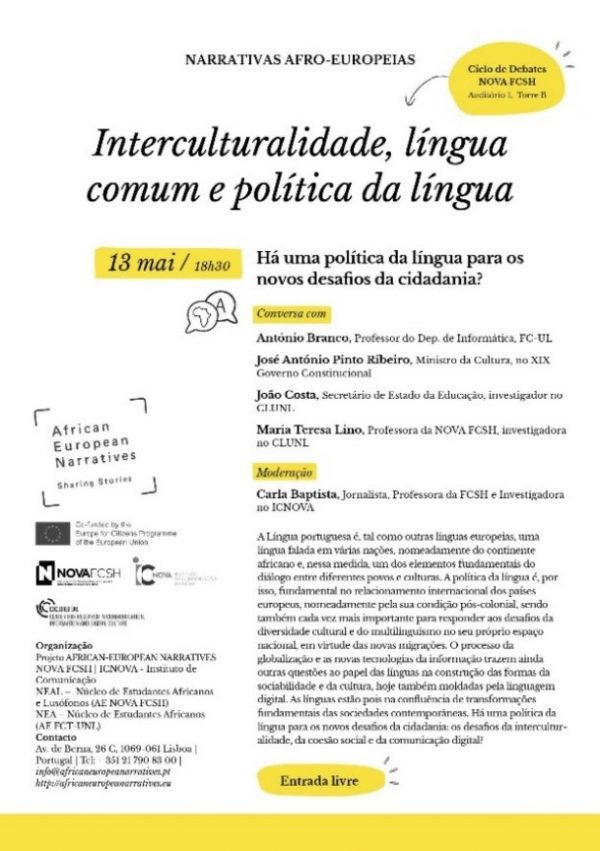 Pannel
Pannel
António Branco
(Researcher at FC-UL, Information Science Department)
José António Pinto Ribeiro
(Ministry of Culture, XVII Portuguese Government)
João Costa
(Secretary of State For Education)
Maria Teresa Lino
(Researcher at NOVA FCSH – CLUNL)
Moderator
Carla Baptista
(Journalist, researcher at NOVA FCSH – ICNOVA)
- João Costa (Secretary of State For Education) and Carla Baptista (Journalist)
- Questions from the audience
Closing Event
3rd June 2019
{AFRO}EUROPEAN COMMUNUTY
How can we build a diverse community ?
The closing event of the Afro-European Narratives project included the public presentation of results, the announcement of the winning stories of the Prizes BEST African-European Narratives and Afropean Distinctions and the special participation of the Genearation Orchestra (Sacavém, PT). This festive occasion was also the opportunity for a get together with the partners (PRSD – PT, SAVVY Contemporary – DE, UNESC0 Chair – University of Bordeaux-Montaigne – FR) and with several participant organisations (members of Schools and Student Associations, of BUALA-PT, of AFROPEAN -UK, etc.)
The programme also included an open talk with the Commissioner of the Celebrations of the Day of Portugal 2019 (10th June), the closing session of the Debate Series and a final Conference by Boaventura de Sousa Santos. These three moments of talk and discussion where dedicated to the idea of European citizenship as the ground for a diverse community that transcends the sum of national identities, but also to tackling the difficulties facing multicultural societies and a full decolonisation of minds.
- The Orchestra GENERATION (Sacavém, PT) at the Closing Event of the African-European Project, Nova University of Lisbon, 3rd June 2019
THE-OTHERING PORTUGAL
Open Talk With the 2019 Commissioner of the Day of Portugal
João Miguel Tavares
The Day of Portugal (10th June) celebrates the Portuguese Community, either living in national territory or scattered around the world, reminding us that also Portuguese and other Europeans can be immigrants in diferent continents and countries. In 2019, these celebrations took place in the portuguese city of Portalegre (Portugal) and in the city of Mindelo (Cabo Verde, Africa), offering an interesting ocasion to reflect upon postcoloniality and the present relationship between Portugal and Cabo Verde.
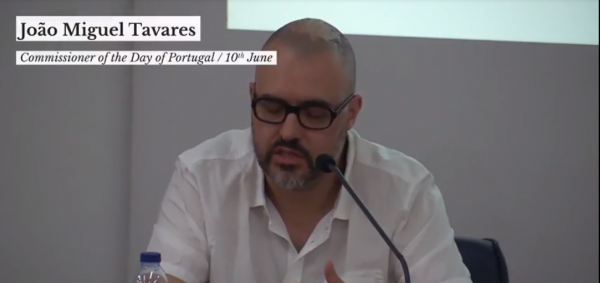
João Miguel Tavares (journalist)
DEBATE
How can we build a diverse community ?
The current diversity of European societies far transcends the one traditionally celebrated within its space as well as the identity narratives displayed by each of its nations. This socio-cultural transformation, although pressured by the more recent phenomena of migration, is firstly the result of the decolonisation and globalisation processes. How can we develop European citizenship, in order to build a stronger community out of this growing diversity of Europe?
Pannel
Inocência Mata
(Researcher, CEC – University of Lisbon)
Pedro Cardim
(Researcher, NOVA FCSH – CHAM)
Sónia Magalhães
(Researcher, NOVA FCSH)
Yara Monteiro
(Writer)
Moderator
Marta Lança (Editor of BUALA)
Closing Event – FINAL DEBATE
Sónia Magalhães (activist), Yara Monteiro (writer), Inocência Mata (researcher), João Miguel Tavares (journalist), Marta Lança (moderator)
Organisation
NOVA FCSH (Lisbon)
ICNOVA (Communication Institute) with the support of
AE FCSH (Students Association) and
NEAL (Group of African and Lusophone Students of FCSH)
Coordination
Maria Teresa Cruz (ICNOVA), Susana Trovão (Director For Research NOVA FCSH).
Communication and Production
Ana Grave, Inês Morais, João Meirinhos and Lara Branco
